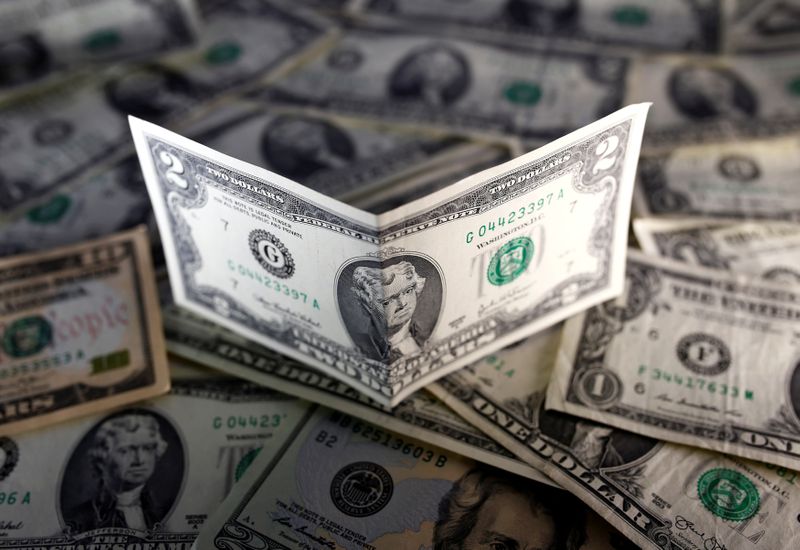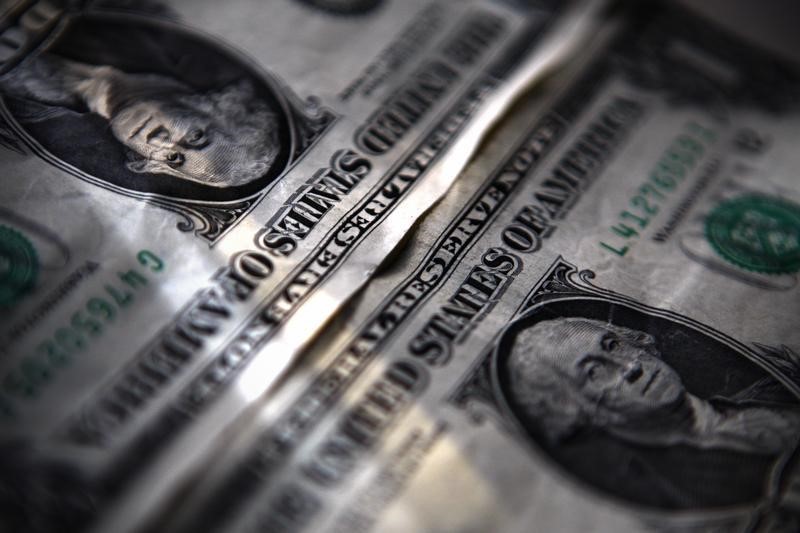By Kevin Buckland
TOKYO (Reuters) - The dollar's rebound from a near three-year low faltered on Friday after U.S. Federal Reserve Chair Jerome Powell said interest rates would not rise any time soon.
The release of details of President-elect Joe Biden's $1.9 trillion stimulus on Thursday failed to give the greenback additional support, with the main points of the plan already reported by the media.
Bitcoin continued to recover after a nearly $12,000 plunge from the record $42,000 reached last week, briefly topping $40,000 overnight.
The dollar index has rallied after reaching its lowest level since March 2018 last week, as the prospect of more stimulus weighed on U.S. government bonds, sending the benchmark 10-year Treasury yield above 1% for the first time since March.
Although many analysts predict the greenback will resume the decline that saw it slide almost 7% last year versus major peers as the global economy recovers from the coronavirus pandemic, there is growing concern that the rise in yields will temper that weakness.
"The baseline case is still for a substantial acceleration in the global economy, which historically has proven to be positive for most currencies against the U.S. dollar,"
said Westpac currency analyst Sean Callow.
"But I think there is potential to at least have a debate over whether the U.S. dollar will be quite as weak as people expect."
The dollar index was little changed at 90.319 after drifting slightly lower overnight. It rebounded to as high as 90.73 at the start of this week from as low as 89.206 on Jan. 6.
Powell said in a live-streamed interview with a Princeton University professor on Thursday that the economy remains far from where the Fed wants it to be, and that he sees no reason to alter its highly accommodative stance "until the job is well and truly done."
The central bank's asset-buying program has weighed on the dollar as it increases supply of the currency, diminishing its value.
The dollar was little changed at 103.77 yen after slipping 0.1% overnight.
The euro eased 0.1% to $1.21395, on track for a three-day decline.
"The implication is that monetary policy will remain loose for a long time, which will keep real yields negative and contain any further USD rallies," Commonwealth Bank of Australia (OTC:CMWAY) currency analyst Kim Mundy wrote in a note.
The riskier Aussie dollar slid 0.3% to 77.560 U.S. cents, tempering the previous session's 0.6% rise.
The Chinese yuan inched up, underpinned by the China central bank's decision to drain a small amount of cash from the banking system while keeping interest rates unchanged. The moved reinforced investors' views that it is slowly shifting to a tightening bias in monetary policy as economic activity bounces back to pre-pandemic levels.
In the spot market, onshore yuan opened at 6.4673 per dollar and was changing hands at 6.4703 at midday, about 0.1% or 57 pips firmer than the previous late session close.
Bitcoin slid about 1% to $38,729, after climbing as high as $40,112.78 overnight.

